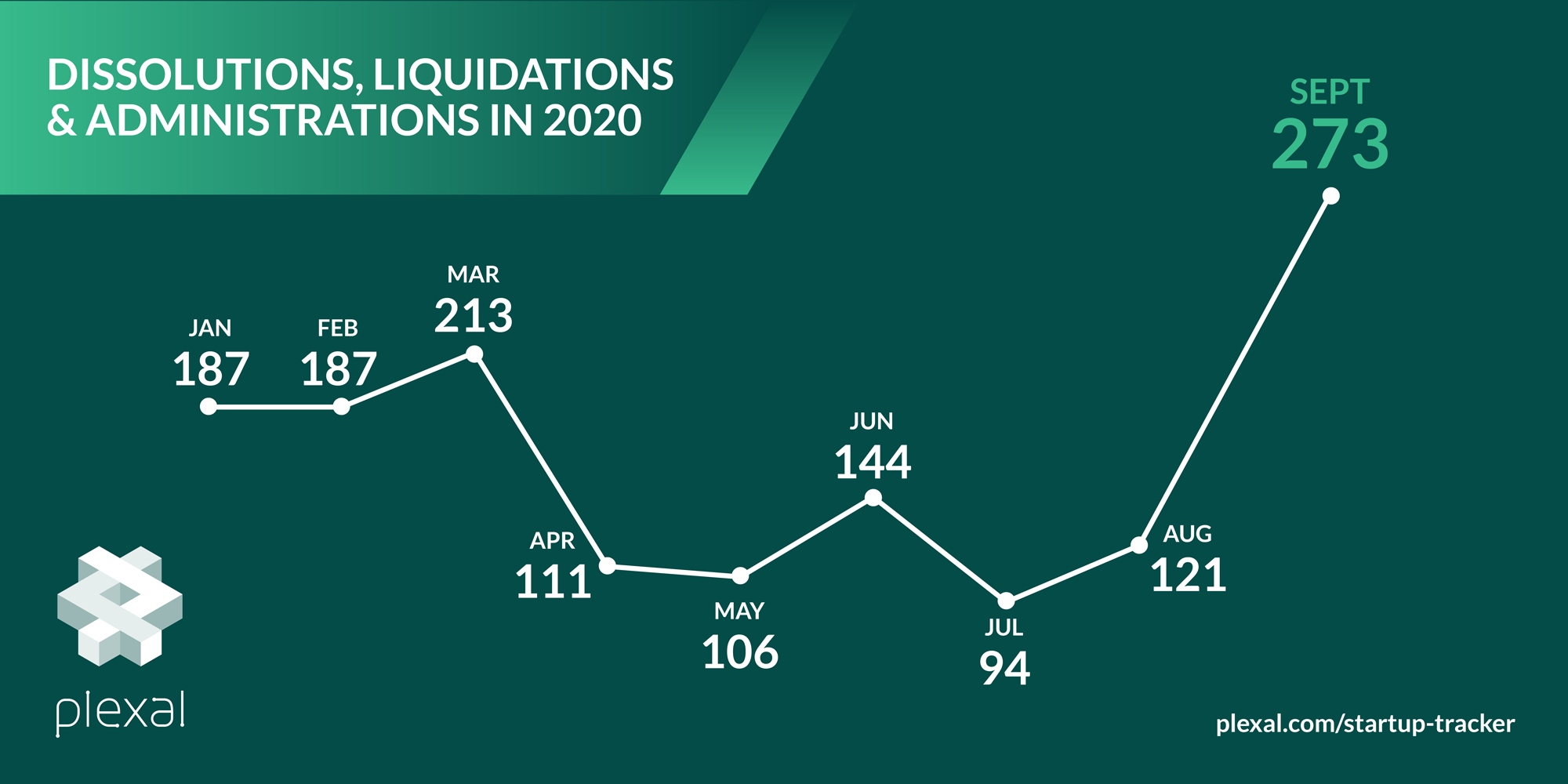Since lockdown began Plexal and Beauhurst, the UK’s leading database for fast-growth companies, have analysed nearly 30,000 startups to understand investment activity. And our latest research from our Startup Tracker has found that 1,067 startups in the UK have filed for administration, liquidation or dissolution since lockdown began.
Following artificially low filings between April and August, September saw a record number of filings – the highest monthly figure in 10 years – as the true impact of COVID-19 starts to show. In fact, 273 companies filed for administration, liquidation or dissolution in September out of a total of 1,067 since the beginning of lockdown – a 181% month-on-month increase compared with August.
While government schemes such as CBILS, BBLS and the Future of Fund have provided valuable support to cash-strapped early stage companies struggling to survive the economic impact of the COVID-19 crisis, their preservative effect is starting to diminish.
Plexal is concerned that this spike to record levels has occurred before the conclusion of government support schemes. As they come to an end, the next two months could be crucial for the next generation of high-potential startups in the UK.

The increase in failures has been felt the most in two of the UK’s major regions for startup growth. A total of 388 high-growth companies based in London have filed for administration, liquidation and dissolution since the start of April, with numbers increasing from 30 to 95 between August and September (a 217% rise). Meanwhile, 48 Scottish startups filed in September, almost half (49%) of the total filings since the start of April (97).
Since the UK was placed into lockdown in March, the UK’s high-growth startups have raised £5.37bn in investment. This is 18% compared to the same period in 2019. However, only £458m of this was raised by startups raising investment for the first time, representing a 55% year-on-year decrease for first-time funding. This highlights the disparity between more mature companies and those at the earliest stages of development.
Commenting on our research, Andrew Roughan, managing director of Plexal, said: “The government commendably offered a number of startups a lifeline at the peak of the crisis. But despite the slowly improving funding picture, we are now starting to see the pent-up effect of the pandemic on UK businesses – in particular early-stage startups. Government support has artificially kept companies afloat and delayed the true impact.
“We are only now starting to see more severe damage to UK startups that puts the survival of an entire generation of innovative companies at risk. Government initiatives alone are not sufficient to support startups most in need of funding and cashflow in the current economic climate. It’s these businesses that will provide the innovation and jobs that will drive the UK’s economic recovery, and they need our urgent support.”
Meanwhile Henry Whorwood, head of research and consultancy at Beauhurst, said: “We have never seen a month with so many startup deaths as we did in September. While the number of filings has naturally grown as the number of high-growth UK businesses increases, our data clearly shows a sustained reduction in these companies filing for administration, liquidation or dissolution as a result of the Government’s financial support schemes for small businesses. The sudden spike that follows, however, signals that their impact is waning. The coming months could be crucial for the future of the UK startup community.”


